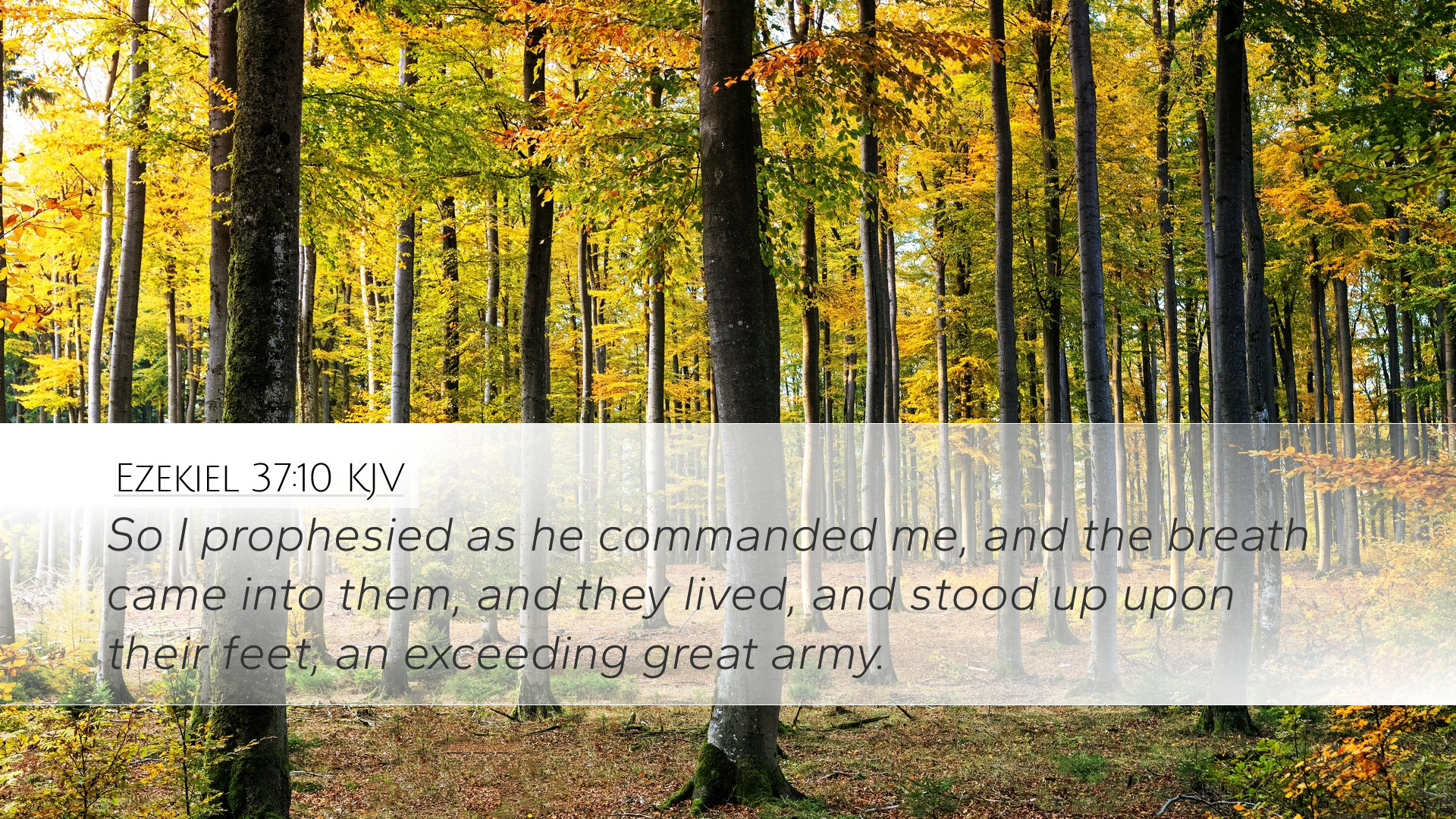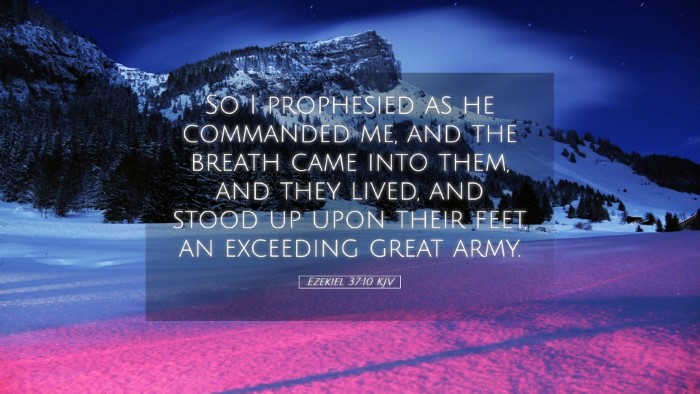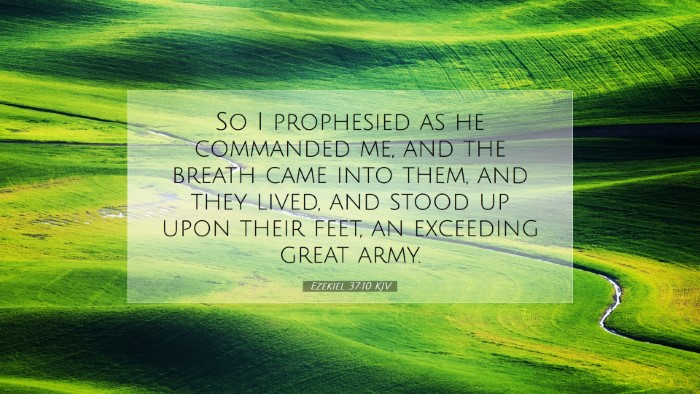Ezekiel 37:10 - Commentary
Bible Verse: "So I prophesied as he commanded me, and the breath came into them, and they lived, and stood up upon their feet, an exceeding great army."
Introduction
The passage from Ezekiel 37:10 describes a powerful moment in the prophet’s vision of the valley of dry bones, where God instructs Ezekiel to prophesy to the bones, leading to their revival. This verse signifies not only the restoring of life to the dead but also carries profound implications for the spiritual revival of Israel and the church.
Contextual Background
Ezekiel, a priest and prophet during the Babylonian exile, speaks to a people marked by despair and hopelessness. The vision metaphorically illustrates Israel's need for spiritual renewal and restoration. Matthew Henry emphasizes that the imagery of the dry bones signifies the state of the people of God, who, though alive, lacked the vigor of faith and obedience.
Public Domain Commentaries Insights
-
Matthew Henry:
Henry states that the vision shows how God can bring life from deadness, a theme prevalent throughout scripture. His commentary notes the importance of obedience to divine commands, suggesting that Ezekiel’s prophesy was not merely a formality but a critical act of declaring the Word of God, which holds the power of life and resurrection.
-
Albert Barnes:
Barnes expounds that the ‘breath’ mentioned signifies the Spirit of God. It is by God’s Spirit that the spiritually dead are made alive. This prophetic act not only demonstrates God’s sovereignty but also ties into the larger narrative of redemption, suggesting that the revival of Israel is a foreshadowing of the coming of Christ and the Holy Spirit’s work in the church today.
-
Adam Clarke:
Clarke highlights the transformation of the dead bones into an ‘exceeding great army.’ This phrase suggests not just a revival but a mobilization for service. Clarke’s insights prompt pastors and theologians to reflect on the implications of being spiritually revived; believers are not merely restored for their benefit but are called to actively engage in God’s mission.
Theological Implications
The theological depth of Ezekiel 37:10 highlights key doctrines essential for both ecclesiology and eschatology:
-
Restoration and Renewal:
This verse is a poignant reminder of the promise of renewal inherent in God’s covenant. It carries hope for the church today, emphasizing that no one is beyond the reach of God's transformative power. The phrase ‘stood up upon their feet’ signifies not just awakening but readiness for action.
-
The Role of the Holy Spirit:
The 'breath' or 'Spirit' brings to mind themes from both the Old and New Testaments about the life-giving essence of God's Spirit. The connection between Ezekiel’s prophecy and the outpouring of the Holy Spirit in Acts provides a rich area for exploration, evidencing that revival is sustained by an ongoing relationship with the Spirit.
-
Mobilization for Mission:
From "exceeding great army," we glean that revival comes with responsibility. Followers of Christ are called to be ambassadors of His kingdom, engaging in both the proclamation of the gospel and social justice. The imagery compels readers to consider their roles as part of a greater mission for God’s purpose.
Practical Applications for Ministry
In practical terms, Ezekiel 37:10 prompts reflection on several key applications in ministry contexts:
-
Preaching with Authority:
Ministers are called to speak God’s Word with conviction and expectant faith, trusting that it can bring life to those who are spiritually dead.
-
Invocation of the Spirit:
Recognizing that revitalization comes only through the working of the Holy Spirit can guide church leaders to prioritize prayer and dependence on God in their ministries. Seeking the Spirit’s involvement is essential in nurturing spiritual growth and revival.
-
Equipping and Mobilizing Believers:
With an understanding that believers are part of an ‘exceeding great army’, church leaders should focus on equipping their congregations for active service, ensuring that every member is prepared to fulfill their part in advancing God’s kingdom.
Conclusion
Ezekiel 37:10 is a monumental scripture that encapsulates themes of hope, restoration, and divine purpose. The insights gathered from Matthew Henry, Albert Barnes, and Adam Clarke enrich our understanding, providing layers of meaning for pastoral care, teaching, and academic study. For contemporary Christians, this verse serves as a source of encouragement, reminding them that God can breathe life into even the driest of bones, empowering a generation to rise up as a powerful force in the world.


